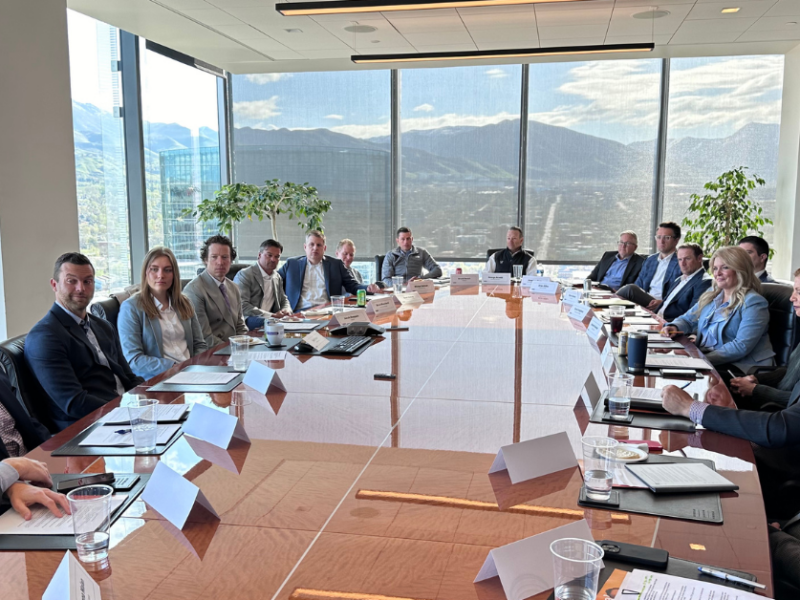
Sponsored: No more non-compete agreements?

This article is sponsored by Parsons Behle & Latimer.
The word is out: Non-compete agreements have been officially condemned by the Federal Trade Commission (FTC). On April 23, 2024, the FTC issued a long-awaited final rule aimed at banning nearly all non-compete agreements across the country. The sweeping rule caused a tremendous stir in the business and legal communities and received coverage by many major news outlets including NPR, the New York Times and the Wall Street Journal. The buzz surrounding the rule is hardly surprising; when it takes effect, the rule will cause a massive shift in how businesses can structure their relationships with their employees and other businesses. This shift will be particularly acute in states that generally permit reasonable non-competes, like Utah. Any companies and employers who currently rely on non-competes in their business relationships should keenly watch any developments affecting the FTC’s final rule, including those discussed below.
What is a non-compete?
States have used various definitions to delineate what constitutes a non-compete, but at their most basic, a non-compete is a contract provision that restricts a person’s ability to work. While many states currently allow non-competes, most states require that a non-compete be tailored to protect an employer’s legitimate business interest; it cannot be solely aimed at prohibiting competition between businesses. For example, many states consider protection of trade secrets a legitimate business interest that can support a non-compete. In addition to a legitimate business interest, many states have requirements for the types of restrictions a non-compete may impose on a person. For instance, in Utah, a non-compete may not restrict an employee from working for a new employer for a period of more than one year. Though states differ in how they define and enforce non-competes, as more fully explained below, the FTC’s final rule’s definition of a non-compete clause is extremely broad and likely captures the non-compete agreements some states currently allow.
Key provisions of the final rule:
The FTC’s final rule has several key provisions that businesses should be aware of:
Definition of a “Non-Compete Clause”
First, the FTC’s final rule defines a “non-compete clause” as:
A term or condition of employment that prohibits a worker from, penalizes a worker for, or functions to prevent a worker from:
- Seeking or accepting work in the United States with a different person where such work would begin after the conclusion of the employment that includes the term or condition; or
- Operating a business in the United States after the conclusion of the employment that includes the term or condition.
Importantly, the final rule’s definition of a non-compete does not explicitly encompass other types of restrictive covenants, like non-disclosure agreements or non-solicitation agreements. Though it would depend on their specific terms, these other types of restrictive covenants may not be encompassed by the FTC’s final rule.
Unfair Methods of Competition
Second, the FTC’s final rule states that it is an unfair method of competition for a person:
- To enter into or attempt to enter into a non-compete clause;
- To enforce or attempt to enforce a non-compete clause; or
- To represent that the worker is subject to a non-compete clause
This provision of the final rule not only prohibits employers from entering into new non-competes but also prohibits them from enforcing existing non-competes. This provision has a small carve-out for “senior executives,” or employees who are in a “policy-making position” and earn at least $151,164 in annual compensation. While employers will not be able to enter into new non-competes with these senior executives, their existing non-competes will remain enforceable, even after the final rule goes into effect.
Exceptions to the Final Rule
Finally, the FTC’s final rule contains a few limited exceptions under which it does not void non-competes. For example, the final rule does not apply to non-competes that are entered into in association with the sale of a business entity or a person’s ownership interest in a business entity. The final rule also does not apply to legal claims based on non-competes that accrue before the final rule goes into effect.
Will the final rule go into effect?
The final rule will not go into effect until 120 days after it is published in the Federal Register, which is scheduled to take place on May 7, 2024. However, there have been several developments that may delay the date on which the final rule is published or given effect. For example, on April 24, 2024, the United States Chamber of Commerce and others sued the FTC in a Texas federal court, asking that the final rule be held unlawful and set aside. On the same day the Chamber of Commerce filed its lawsuit, it filed a “Motion for Stay of Effective Date and Preliminary Injunction” asking the Texas court to suspend the effective date of the final rule and/or stop enforcement of the rule. As of the date of this article, the Texas court has not issued an order on the Chamber of Commerce’s Motion, but if the Court grants the motion, it may forestall the date on which the final rule goes into effect.
The FTC’s final rule presents a substantial change in how businesses may configure their business relationships. While the final rule may be the end of non-competes, there are several other ways businesses may protect their legitimate business interests. If you have questions regarding how the final rule will affect your business or how to protect your business after the rule goes into effect, please do not hesitate to reach out. ![]()





